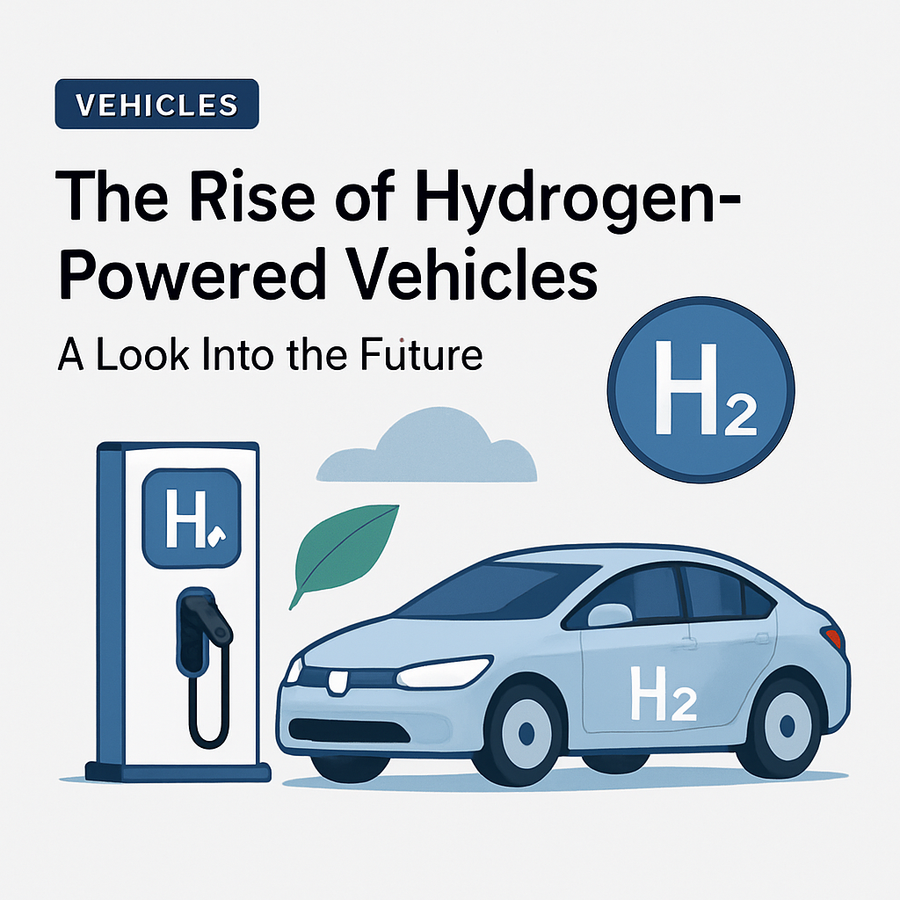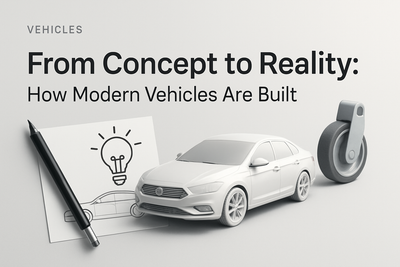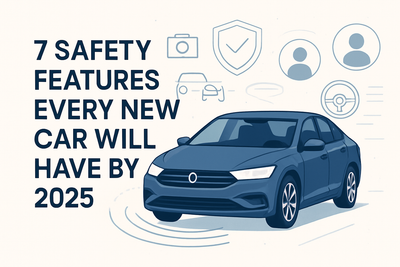The Rise of Hydrogen-Powered Vehicles: A Look Into the Future
Introduction
As the world grapples with the urgent need to reduce carbon emissions and combat climate change, the transportation sector is undergoing a revolutionary shift. While electric vehicles (EVs) have garnered most of the spotlight, hydrogen-powered vehicles are emerging as a formidable player in the quest for sustainable mobility. Unlike conventional gasoline cars and even some EVs, hydrogen fuel cell vehicles produce zero harmful emissions and offer impressive refueling speeds and range.

In this article, we’ll explore what hydrogen vehicles are, how they work, their advantages and challenges, and what the future holds for this promising technology.
What Are Hydrogen-Powered Vehicles?
Hydrogen-powered vehicles use a fuel cell to generate electricity from hydrogen gas. This electricity then powers an electric motor to drive the vehicle. The only emission from this process? Water vapor. These vehicles combine the best of both worlds—clean energy and electric mobility—with the added bonus of quick refueling times.
Unlike battery electric vehicles (BEVs) that store electricity, hydrogen fuel cell vehicles (FCVs) generate electricity on demand, making them an appealing option for drivers who want efficiency without long charging times.
Advantages of Hydrogen Vehicles
1. Zero Emissions
Hydrogen FCVs emit only water vapor, making them an environmentally friendly alternative to fossil fuel-powered cars. They significantly reduce greenhouse gas emissions and contribute to cleaner air.
2. Quick Refueling
One of the biggest drawbacks of electric vehicles is their charging time. Hydrogen cars can be refueled in about 5 minutes, similar to traditional gasoline cars—a huge advantage for drivers on the go.
3. Extended Range
Hydrogen vehicles often offer longer ranges than many electric cars. For example, the Toyota Mirai boasts a range of over 400 miles on a full tank.
4. Energy Efficiency
While hydrogen production requires energy, advancements in green hydrogen—produced using renewable sources—are making the entire lifecycle of hydrogen vehicles more sustainable.
Challenges Facing Hydrogen Adoption
Despite their potential, hydrogen-powered vehicles face several barriers to widespread adoption:
- Infrastructure Limitations: Hydrogen fueling stations are still scarce, particularly outside of major urban areas or countries investing heavily in hydrogen tech (like Japan and South Korea).
- High Production Costs: Producing hydrogen in a clean and cost-effective way remains a challenge. However, investments in green hydrogen technologies are rapidly improving this outlook.
- Public Awareness: Most consumers are familiar with gasoline or electric vehicles, but knowledge of hydrogen FCVs remains limited.
Who’s Leading the Charge?
Major automakers like Toyota, Honda, and Hyundai are at the forefront of hydrogen vehicle development. The Toyota Mirai and Hyundai Nexo are already available to consumers, while other companies are exploring hydrogen trucks and buses for commercial use. Even nations are getting involved—Germany and China have ambitious plans to expand their hydrogen infrastructure and fleets.
The Road Ahead: Hydrogen in the Future
The future of hydrogen-powered vehicles looks increasingly optimistic. With growing investments in infrastructure, greener production methods, and heightened environmental awareness, hydrogen could play a crucial role in the next generation of clean transportation.
Hydrogen won’t replace electric vehicles—it will complement them. Especially in sectors like heavy-duty trucking, public transportation, and long-range travel, where quick refueling and extended range are critical.
Conclusion
Hydrogen-powered vehicles represent a compelling path forward in the evolution of sustainable transportation. As technology advances and infrastructure expands, these zero-emission vehicles could become a common sight on our roads. While challenges remain, the promise of hydrogen as a clean, efficient, and practical fuel source positions it as a key pillar in the global push for a greener future.
Whether you’re an eco-conscious commuter or a policy maker planning tomorrow's cities, hydrogen vehicles are definitely worth watching—because the future of transportation might just be powered by the most abundant element in the universe.








